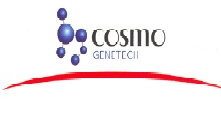- Project 1 :
- Complement iGEM 2009 project topic
Our team project is designing synthetic modules for simultaneous detection of multiple heavy metals such as arsenic, zinc, and cadmium in E. coli. The ultimate goal is to build a micromachine sensing and determining of the concentration of heavy metals in a sample solution (e.g. the waste water). In order to design the system, we will employ two fluorescence proteins (GFP and RFP) and aryl acylamidase as signal reporters. Since each heavy metal promoter produces unique fluorescence or color by those reporters, if more than two heavy metals coexist in a solution, the results would be interpreted from the convoluted fluorescence and/or color rather than a single signal detection. The successful construction of the synthetic modules in E. coli can be utilized in the form of a lyophilized powder, which can be stored in a drug capsule to make it portable.
- Problems with iGEM 2009 project topic: When registering part, Not done in designated way but in our own way. As the purpose of iGEM is to STANDARDIZE data, it was considered violating diciplines, winning no medal. (The restriction site should have been eliminated)
- Complement: Partization, cloning in "iGEM way" - Make former result a capsule as a complete product. (Former presentation shows that we can check if the water is contaminated with heavy metal with Tylenol and E. coli) Since it is already shown that the circuit works, we can develop the result. We can put the tools in a capsule and provide the capsules to developing countries to check if their water is contaminated.
|
- Project 2: Turning on/off the circuit
- Point: Have to check if we could turn a circuit on/off with one substance.
- Bioswitches are already reported. However, this research will be meaningful in the way that it uses only one substance rather than many.
|



 "
"